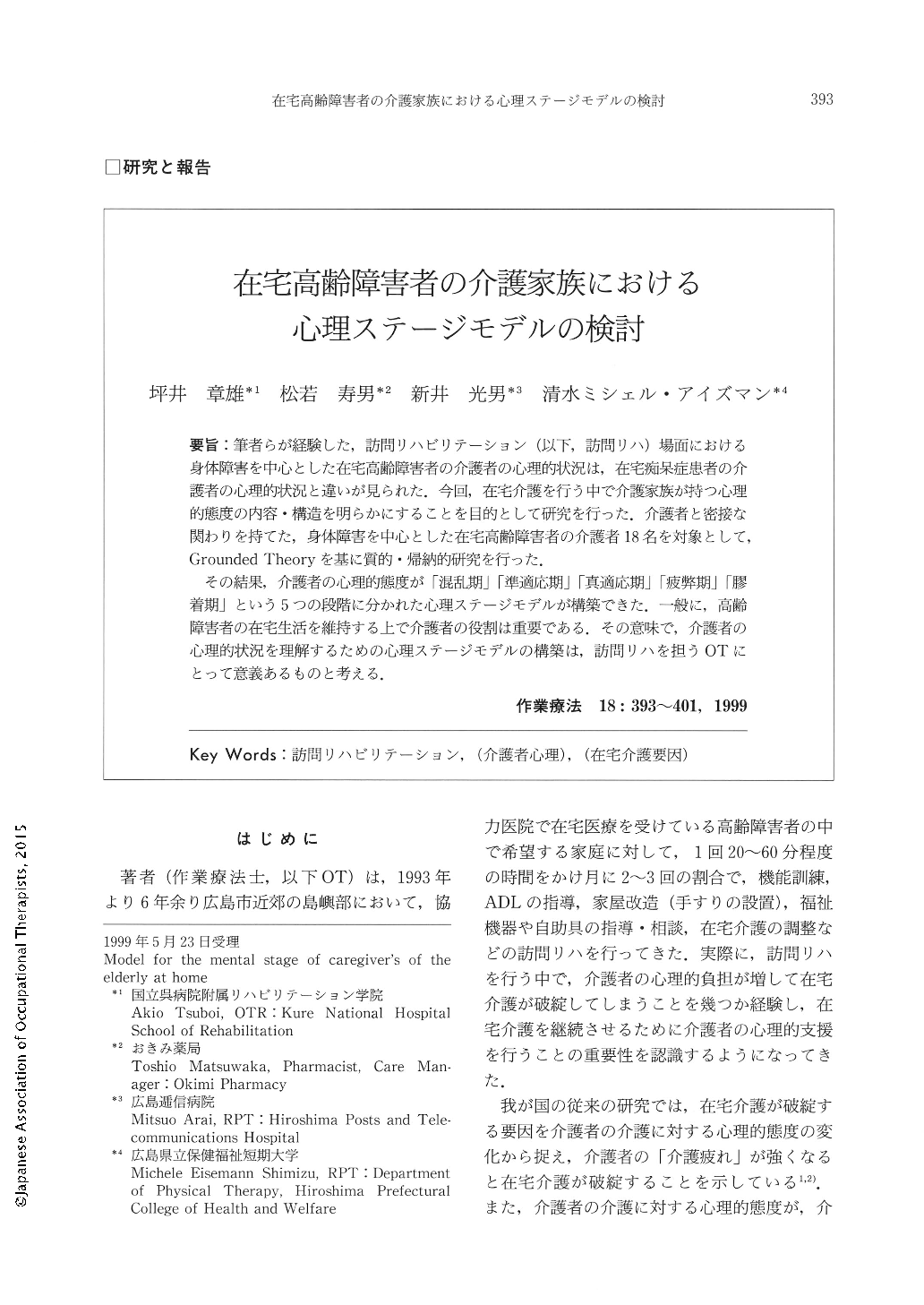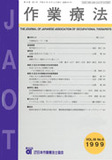Japanese
English
- 販売していません
- Abstract 文献概要
- 1ページ目 Look Inside
- 参考文献 Reference
- サイト内被引用 Cited by
要旨:筆者らが経験した,訪問リハビリテーション(以下,訪問リハ)場面における身体障害を中心とした在宅高齢障害者の介護者の心理的状況は,在宅痴呆症患者の介護者の心理的状況と違いが見られた.今回,在宅介護を行う中で介護家族が持つ心理的態度の内容・構造を明らかにすることを目的として研究を行った.介護者と密接な関わりを持てた,身体障害を中心とした在宅高齢障害者の介護者18名を対象として,Grounded Theoryを基に質的・帰納的研究を行った.
その結果,介護者の心理的態度が「混乱期」「準適応期」「真適応期」「疲弊期」「膠着期」という5つの段階に分かれた心理ステージモデルが構築できた.一般に,高齢障害者の在宅生活を維持する上で介護者の役割は重要である.その意味で,介護者の心理的状況を理解するための心理ステージモデルの構築は,訪問リハを担うOTにとって意義あるものと考える.
During our six years of experience in home health services, we found that the mental attitudes of caregivers for persons with senile dementia were different from those helping the physically disabled elderly. The purpose of this study is to compose an organized and substantive report on the basic mental attitudes of caregivers. There were 18 subjects, all caregivers for elderly, bedridden persons receiving occupational therapy at home over a period of six years. Grounded theory was used to analyze the transcribed episode data with home rehabilitaition, and we composed a model for the mental stage of caregivers of the physically disabled elderly at home, and we concluded that there are five types of psychological stages : I confusion, II pre- adaptation, III adaptation, IV fatigue, and V burn-out.
Caregivers have the important role of helping elderly, bedridden persons receiving essential and proper care at home. Occupational therapists provide basic home health services to the elderly, and they need to understand the problems and changing mental attitudes that caregivers face. Consequently, we made a model of the various stages caregivers go through while they provide services at home.

Copyright © 1999, Japanese Association of Occupational Therapists. All rights reserved.


